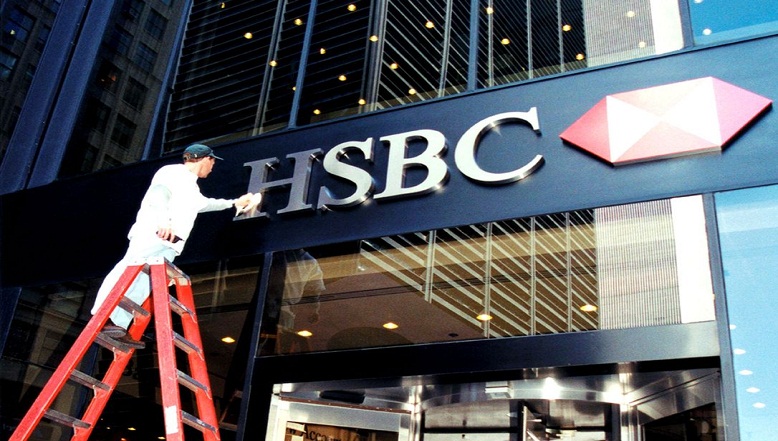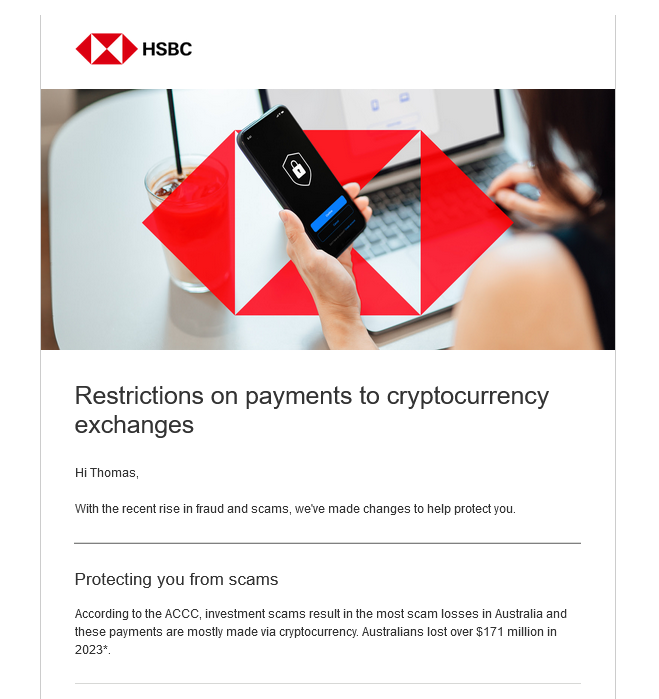HSBC Australia blocks customer payments to crypto exchanges, citing scam protection.

The Australian branch of the international bank HSBC has notified its customers that it has commenced preventing customer payments to cryptocurrency exchanges as of July 24 local time. This marks the latest major bank to abandon the industry, citing the prevalence of frauds.
“In an email to customers on July 24, 2024, HSBC Australia announced that it will prevent payments from bank accounts and credit cards that it reasonably believes are being made to cryptocurrency exchanges. This policy is intended to safeguard customers.”
“If you wish to make payments to cryptocurrency exchanges, you’ll need to make alternative arrangements.”

In order to substantiate its decision, HSBC referred to data from the competition and consumer regulator of Australia, which indicated that in 2023, Australians suffered losses of up to $171 million to investment schemes.
The bank issued an apology for the “inconvenient” modification, but it underscored that its primary objective is to guarantee the security of customer funds.
HSBC’s action is less than a year after the “Big Four” banks of Australia—Commonwealth Bank, National Australia Bank, Westpac, and Australia and New Zealand Banking Group (ANZ)—took comparable measures to restrict payments to cryptocurrency exchanges.
A short time later, Bendigo Bank in Australia followed suit, also emphasizing the necessity of safeguarding consumers from investment scams.
Amy-Rose Goodey, the managing director of the Digital Economy Council of Australia (previously known as Blockchain Australia), notified Cointelegraph that they were not “pre-informed” of HSBC’s decision.
“The recent decision by HSBC to block all payments to cryptocurrency exchanges has reignited concerns about the ongoing challenges facing the relationship between Australian banks and the cryptocurrency sector,” said Goodey.
He explained that the move is not isolated and is part of a “concerning trend” of restrictions that affect the digital currency community.
“It underscores the critical need for dialogue and improved regulatory frameworks that support innovation while addressing potential risks effectively.”
Goodey stated that an increasing number of Australians will forfeit the “financial right” to participate in the expanding digital economy in the absence of such dialogue.
Goodey further stated that banks and industry participants will be better equipped to combat these scams without hindering innovation by implementing “clear, fair, and forward-thinking regulations.” She also mentioned that the association has progressed correctly since last year. DECA was appointed to the advisory board of the National Anti-Scam Center.
HSBC stated that it would continue to take customer payments from cryptocurrency exchanges and that banking operations would proceed as usual.
Currently, HSBC Australia operates 45 branches across the nation, serving 1.5 million consumers.
